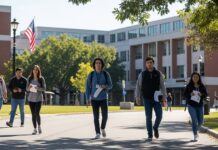Charan Ranganath, a seasoned professor specializing in neuroscience and psychology at the University of California, Davis, has delved into the intricate workings of memory for over a quarter-century. In his latest work, “Why We Remember: Unlocking Memory’s Power to Hold on to What Matters,” Ranganath shares invaluable insights that shed light on our memory’s inner workings.
1. Memory: Beyond the Past
One of the most common reactions I receive when discussing memory research is, “Can you fix my terrible memory?” It’s a sentiment many of us can relate to—misplacing keys, forgetting names, or losing track mid-conversation. However, understanding memory goes beyond these forgetful moments. Contrary to popular belief, memory isn’t solely about recollecting past events. It’s a dynamic process that shapes our present and future. Rather than being a mere repository of past experiences,
Contrary to popular belief, memory isn’t solely about recollecting past events. It’s a dynamic process that shapes our present and future. Rather than being a mere repository of past experiences, memory serves as a toolkit, helping us navigate life’s uncertainties
memory serves as a toolkit, helping us navigate life’s uncertainties. From reasoning and planning to communication and self-identity, memory plays a crucial role in our everyday lives. By reframing memory as a resource for the present and future, we empower ourselves to make conscious choices. Instead of dwelling on forgetfulness, we can harness memory’s potential to curate meaningful experiences and insights for the road ahead.
Read also
Intuition: Your Secret Superpower for Predicting the Future
Throughout his research, Ranganath has uncovered actionable strategies to enhance memory function. Stay tuned as we explore these insights further in the following sections.
2. Embracing Memory’s Fluidity
Memory isn’t a static playback of past events; it’s a dynamic process shaped by our perceptions and experiences. When we recall a memory, we’re not retrieving an exact replica of the past; instead, we’re reconstructing it based on our current beliefs, goals, and perspectives. Think of it like an artist painting a scene—each stroke adds layers of interpretation and meaning.
This reconstructive nature of memory makes it both fascinating and fallible. Just as a painting evolves with each brushstroke, our memories are subject to change each time we access them. Our brains constantly tinker with memories, strengthening, weakening, or altering different aspects. This flexibility can sometimes lead to significant errors, as seen in instances like news anchor Brian Williams mistakenly recalling events.
Yet, this adaptability serves a purpose. In a world of constant flux, our memories need to evolve to keep pace with new information and experiences. If someone we trust betrays us or a favorite restaurant causes food poisoning, our brains adjust our recollections accordingly.
Moreover, this malleability offers a glimmer of hope for those haunted by painful memories. By reframing and revising these recollections, we can ease their emotional burden and glean valuable lessons for the future. Our brains’ ability to reshape memories allows us to navigate life’s challenges with resilience and growth.
3. Embracing Growth through Challenges
Our brains are wired to thrive on challenges and mistakes—a phenomenon known as error-driven learning. When we grapple with recalling a memory, it’s akin to a stress test for the brain. The struggle itself serves as a catalyst for improvement. As we push through, our brain repairs and strengthens the neural connections responsible for memory retrieval, making future recollection easier.
Our brains are wired to thrive on challenges and mistakes—a phenomenon known as error-driven learning.
This concept underscores the importance of active learning over passive memorization. Practice tests, for example, prove more effective than mere studying because they engage error-driven learning. Embracing challenges fosters lasting learning and retention.
Yet, our education system often stigmatizes mistakes and struggles. We mistakenly equate difficulty with incompetence. However, the truth is that the greatest learning occurs amidst challenges. Normalizing mistakes and failures, and emphasizing growth over mastery, can revolutionize education, fostering a culture of continuous improvement.
4. Nurturing Your Prefrontal Cortex
Amidst discussions of memory, we often overlook the prefrontal cortex—an evolutionary marvel that orchestrates our cognitive functions. Occupying a significant portion of the primate brain, this “central executive” is pivotal in our day-to-day memory successes and failures.
Firstly, it filters distractions, enabling us to form vivid memories amidst the mundane. Secondly, it equips us with learning strategies for efficient knowledge acquisition. Consider the feats of memory athletes, like Yänjaa Wintersoul memorizing the Ikea catalog in a week. Thirdly, it facilitates critical thinking during recollection, safeguarding against memory distortions. Lastly, it aids in real-time memory deployment, enabling individuals like NBA legend LeBron James to anticipate on-court dynamics based on past experiences.
However, the prefrontal cortex is vulnerable to age-related decline and external stressors. Multitasking, stress, and sleep deprivation impair its function, exacerbating cognitive decline. Fortunately, strategies like physical exercise, mindfulness, and minimizing distractions can bolster frontal function, ensuring optimal memory performance throughout life.
5. Enriching Memory through Diverse Experiences
Just as advanced AI learns from vast datasets, humans gather knowledge through diverse life experiences. Episodic memory—the ability to revisit past events—serves as our training data, enabling rapid adaptation to new situations.
To optimize episodic memory, it’s crucial to diversify our experiences. Changing environments and engaging with people from varied backgrounds enriches our memory banks, fostering adaptability and creativity.
Conversely, monotony leads to impoverished memories. During pandemic lockdowns, the repetitive nature of daily life resulted in a dearth of memorable experiences. Limited interactions and stagnant environments stifled our memory formation.
In the era of AI innovation, human creativity thrives on diversity. Art, music, and literature draw inspiration from a tapestry of experiences. By exposing ourselves to diverse perspectives, we unearth connections and weave them into imaginative creations.
Human imagination isn’t a perfect replica of reality—it’s marked by individual interpretation. Similarly, our memories blend experience with personal perspective, enriching our understanding of the world.
This exploration originally appeared in the Next Big Idea Club magazine, highlighting the symbiotic relationship between diverse experiences and memory enrichment.
Discover more from MUZZLECAREERS
Subscribe to get the latest posts sent to your email.








